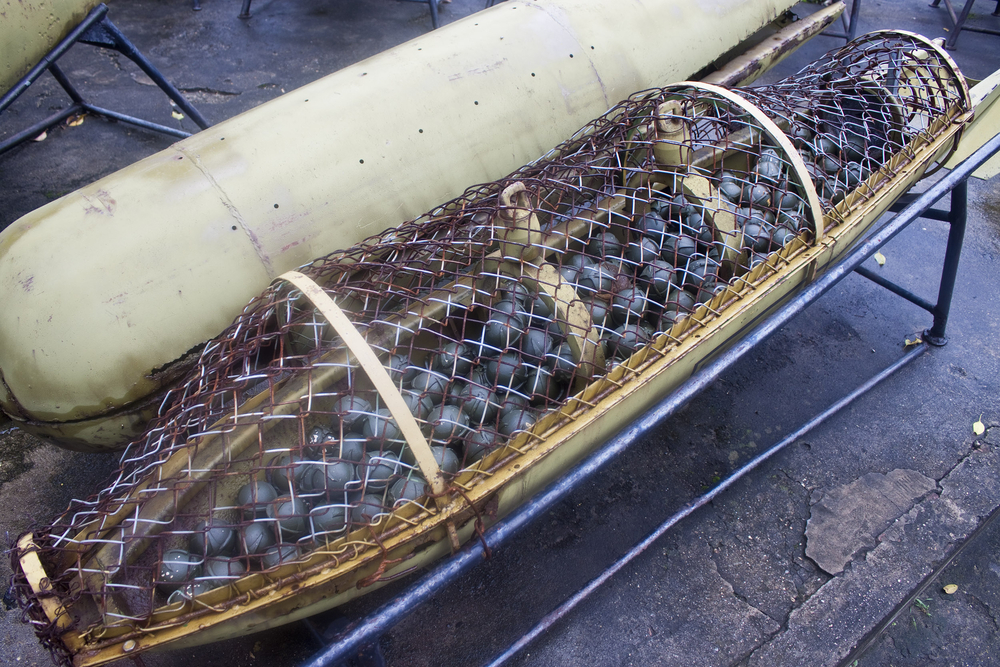
WASHINGTON—The United States announced Thursday it was partially lifting its ban on sales of weaponry to Vietnam to help its maritime security in a sign of deepening ties between the former enemies.
The move is intended to support Vietnam’s ability to defend itself in the South China Sea, where it is among Asian nations facing an increasingly assertive China.
Secretary of State John Kerry informed Vietnamese Deputy Prime Minister Pham Binh Minh of the U.S. decision as they met in Washington.
State Department spokeswoman Jen Psaki told reporters the U.S. will now allow sales of lethal maritime security capabilities and for surveillance on a case-by-case basis.
U.S. officials said it could include both boats and air assets, subject to discussion with Vietnam and evaluation of its needs, particularly its coast guard.
Psaki said the decision was not directed at China, which is likely to be irritated by the move. Beijing which eyes increased U.S. military engagement in Asia as an attempt to contain its rise.
U.S. officials said the easing of the ban recognized improvements by Vietnam’s authoritarian government on human rights, including the release of 11 prisoners of conscience this year and progress on religious freedom, but the move was primarily driven by America’s national security interests.
Human Rights Watch objected to the easing of the ban, saying Vietnam had not earned it. Spokesman John Sifton said Vietnam’s record on political prisoners is “bad and getting worse.” He said numerous churches are still unable to officially register and remain illegal.
Vietnam is a one-party state that squelches dissent, and Amnesty International says scores are still being detained for exercising their right to freedom of expression.
Psaki said Vietnam needs to do more on human rights, and the U.S. continues to evaluate its security relationship with Hanoi.
The U.S. has not transferred lethal arms to Vietnam since communists took power at the end of the Vietnam War. A 1984 embargo prohibited arms sales because of concern over the authoritarian government’s human rights record.
Relations between the U.S. and Vietnam were normalized in 1995, some 20 years after the war’s end. Washington approved non-lethal arms sales in 2006, and ties have since deepened further, particularly as the Obama administration has sought to expand U.S. engagement in Asia.
The State Department characterized Thursday’s move is part of a broader effort to help countries in the region boost their maritime security.
Last December, during a visit to the Southeast Asian nation, Kerry announced $18 million in assistance to Vietnam to provide its coast guard with five, unarmed fast patrol boats. The U.S. is also striving to build the capabilities of another South China Sea claimant, the Philippines, to patrol and monitor its waters.
Despite fraternal ties between the ruling parties of Vietnam and China, tensions spiked this year after China deployed a deep-sea oil rig near the disputed Paracel islands. Vessels from the two sides repeatedly rammed each other near the rig. The standoff triggered deadly anti-China protests and riots in Vietnam.
The U.S. says it has a national interest in peace and stability, and the diplomatic resolution of territorial disputes in the South China Sea, a major conduit for world trade.
Vietnam has been vying for the lifting on the U.S. ban. Last week, Minh, who is also Vietnam’s foreign minister, said it’s been nearly 20 years since Washington and Hanoi normalized relations, and so it’s “abnormal” to retain the ban.
“If we do not buy weapons from the United States, we (would) still buy from other countries,” Minh said at the Asia Society in New York. “Why should China bother about that?”
Russia is currently Vietnam’s main source of armaments. Vietnam has earmarked hundreds of millions of dollars to build more vessels to improve its maritime capability.
Associated Press writer Lara Jakes contributed to this report.